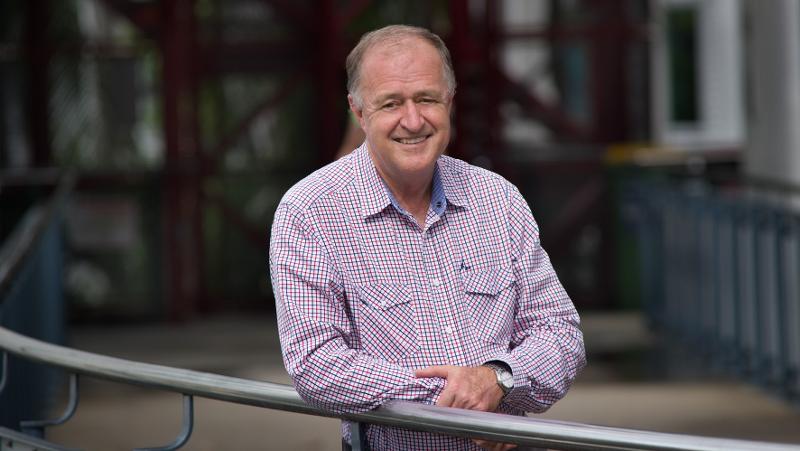
With the Australian Bureau of Meteorology predicting unseasonal heatwave conditions for much of Queensland from Sunday, a QUT health expert has warned people to stay cool, keep an eye on the colour of their wee and remain hydrated.
Professor Gerard Fitzgerald, from QUT’s School of Public Health and Social Work, said heatwaves were the second highest cause of death after pandemics in terms of major threats to public health.
Key points:
- Dehydration is the greatest danger from heatwaves. Drink enough water to have relatively clear urine which indicates you are well hydrated
- Heatwaves can cause heat stroke which occurs when the body overheats and cannot regulate its temperature. Dehydration can trigger heart attacks or strokes and aggravate existing diseases
- If you are drinking alcohol, match each glass with the same amount of water
- Seek cool environments. If you don’t have air-conditioning at home, visit a local shopping centre or cinema
- Avoid vigorous exercise and if outdoors, look for shade; wear cool cotton clothing and a hat
- Check on relatives and elderly neighbours
- Close blinds and curtains to keep your home cool
- Make sure your pets have shade and water
“Parts of Queensland, including the south-east are predicted to reach the mid-to-high 30s and even 40 degrees over the next few days which is pretty extreme for September,” Professor Fitzgerald said.
“People under stress from heat may become quite distressed and alcohol can contribute to dehydration which in turn can lead to aggressive behaviour. If you are having an alcoholic beverage on a hot day then ensure you keep your water intake up as well.
“However, those most badly affected or likely to die during heatwaves are people with chronic diseases including the elderly and those with diabetes, renal failure or cardio or cerebro-vascular disease.
“The signals to be aware of that will alert you your body is dangerously dehydrated include dizziness, nausea, looking flushed, skin not bouncing back, aggression, sleepiness and high temperature.”
Media contact:
Amanda Weaver, QUT Media, 07 3138 3151, amanda.weaver@qut.edu.au
After hours: Rose Trapnell, 0407 585 901, media@qut.edu.au




